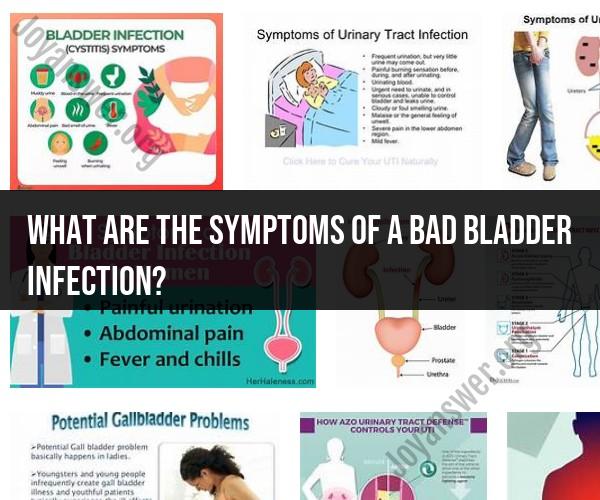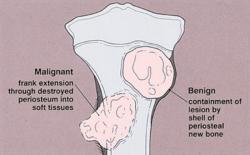What are the symptoms of a bad bladder infection?
A severe bladder infection, also known as cystitis, can cause more intense and distressing symptoms compared to a mild urinary tract infection (UTI). It's important to recognize the warning signs of a severe bladder infection, as it may require prompt medical attention. Symptoms of a severe bladder infection may include:
Intense and Persistent Pain: Severe bladder infections can cause intense pain and discomfort in the lower abdomen or pelvis. This pain may be constant and worsen as the infection progresses.
Frequent and Urgent Urination: You may feel a frequent and urgent need to urinate, even if you pass only small amounts of urine each time. This is known as urinary urgency.
Burning or Painful Urination (Dysuria): Pain or a burning sensation during urination is a common symptom of a severe bladder infection.
Bloody Urine: Hematuria, or the presence of blood in the urine, can occur with a severe bladder infection. This can cause the urine to appear pink, red, or brownish.
Cloudy or Foul-Smelling Urine: The appearance and odor of your urine may change, becoming cloudy and foul-smelling.
Fever: A fever is a sign that the infection may be spreading or causing a systemic response. A high fever is particularly concerning and may indicate a more severe infection.
Back Pain or Flank Pain: Some individuals with a severe bladder infection may experience pain in the lower back or flank area, which can be a sign of a kidney infection (pyelonephritis).
Nausea and Vomiting: Severe bladder infections can lead to nausea and vomiting, which may be a sign that the infection is affecting your overall health.
General Weakness and Fatigue: You may feel unusually weak and fatigued due to the body's response to the infection.
Confusion or Altered Mental State: In rare cases, severe bladder infections can lead to confusion or changes in mental state, especially in older adults.
It's important to note that while these symptoms can indicate a severe bladder infection, they may also suggest other medical conditions, including kidney infections, which can be even more serious. If you experience these symptoms, it is essential to seek prompt medical attention. Your healthcare provider can diagnose the condition, prescribe appropriate antibiotics, and determine the best course of treatment.
Do not ignore symptoms of a severe bladder infection, as untreated infections can lead to complications and can sometimes progress to more serious conditions. Early diagnosis and treatment are crucial for a full recovery and to prevent the infection from spreading to the kidneys or other parts of the urinary tract.
Warning Signs of a Severe Bladder Infection: Recognizing Symptoms
Bladder infections, also known as cystitis, are common and usually treatable with antibiotics. However, some bladder infections can be more severe than others and may require hospitalization.
Here are some warning signs of a severe bladder infection:
- High fever: A fever of 101 degrees Fahrenheit or higher is a sign of a severe infection.
- Severe pain: Severe pain in the lower back or pelvis can be a sign of a kidney infection, which is a complication of bladder infections.
- Nausea and vomiting: Nausea and vomiting can be signs of a severe infection or dehydration.
- Difficulty urinating: Difficulty urinating can be a sign of a severe infection or a blockage in the urinary tract.
- Bloody urine: Bloody urine can be a sign of a severe infection or damage to the bladder lining.
- Confusion (in older adults): Confusion can be a sign of a severe infection or dehydration in older adults.
If you experience any of these symptoms, it is important to see a doctor right away. Early diagnosis and treatment can help to prevent complications.
Other symptoms of a bladder infection
In addition to the warning signs listed above, other symptoms of a bladder infection may include:
- Frequent urination
- Urgent need to urinate
- Pain or burning when urinating
- Cloudy or foul-smelling urine
When to see a doctor
If you have any of the symptoms of a bladder infection, you should see a doctor. You should also see a doctor if your symptoms do not improve after a few days of treatment with antibiotics.
Conclusion
Bladder infections are common and usually treatable with antibiotics. However, some bladder infections can be more severe than others and may require hospitalization. If you experience any of the warning signs of a severe bladder infection, it is important to see a doctor right away.













